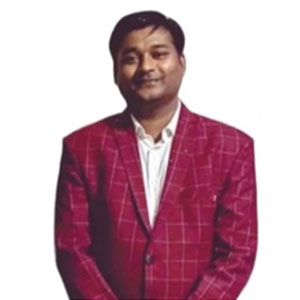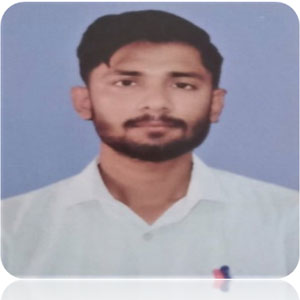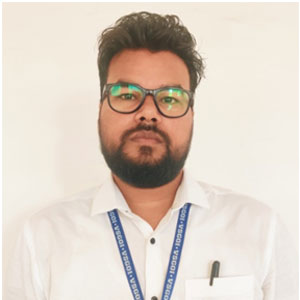
To develop competent and capable civil engineering students by providing them quality technical education for fulfilling basic human needs of the society as a civil engineer.

Civil Engineering is one of the broadest and oldest of the engineering disciplines, extending across many technical specialties. Civil Engineers plan, design, and supervise the construction of facilities essential to modern life like space satellites and launching facilities, offshore structures, bridges, buildings, tunnels, highways, transit systems, dams, airports, harbors, water supply system and wastewater treatment plants. A civil engineer is responsible for planning and designing a project, constructing the project to the required scale, and maintenance of the project. A civil engineer requires not only a high standard of engineering knowledge but also supervisory and administrative skills.
Civil engineering design, build, and maintain the foundation for our modern society - our roads and bridges, drinking water and energy systems, sea ports and airports, and the infrastructure for a cleaner environment.
Going by the definition of civil engineering, the subject can be defined as the study, design, development and maintenance of the built environment. When we talk about build environments in the context of civil engineering, it involves both the natural environment and build environment.
The main job of a civil engineer is to try and find a balance between these two environments in order to construct manmade structures that make human lives better, easier and more comfortable without hampering the natural ecology of the earth as well as ensuring economic feasibility and catering to the general needs of the human society. Going by the above understanding, civil engineering has a vast scope of applications in addition to the core construction field. Any industry that is involved in the creation of sustainable infrastructure like oil and energy, chemicals, transportation, power, environmental and marine, need the help of civil engineers to create safe build environments.
1. Engineering knowledge:
Graduates can apply the knowledge of mathematics, science, engineering fundamentals and an engineering specialization to Civil Engineering related problems.
2. Problem analysis:
An ability to identify, formulate, review research literature, and analyze Civil engineering problems reaching substantiated conclusions using principles of mathematics and engineering sciences.
3. Design/development of solutions:
An ability to plan, analyse, design and implement engineering problems and design system components or processes to meet the specified needs.
4. Conduct investigations of complex problems:
An ability to use research-based knowledge and research methods including design of experiments, analysis and interpretation of data, and synthesis of the information to provide valid conclusions.
5. Modern tool usage:
An ability to apply appropriate techniques, resources, and modern engineering and Design Oriented software including prediction and modeling to civil engineering activities with an understanding of the limitations.
6. The engineer and society:
An ability to apply contextual knowledge to assess societal, legal issues and the consequent responsibilities relevant to the professional engineering practice.
7. Environment and sustainability:
An ability to understand the impact of the professional engineering solutions in societal and environmental contexts, and demonstrate the knowledge of, and need for sustainable development.
8. Ethics:
An ability to apply ethical principles and commit to professional ethics and responsibilities and norms of the engineering practice.
9. Individual and team work:
An ability to function effectively as an individual, and as a member or leader in diverse teams, and in multidisciplinary settings to accomplished a common goal.
10. Communication:
An ability to communicate effectively on engineering activities with the engineering community and with society at large, such as, being able to comprehend and write effective reports and design documentation, and make effective presentations
11. Project management and finance:
Ability to demonstrate knowledge and understanding of the engineering and management principles and apply these to one's own work, as a member and leader in a team, to manage projects and in multidisciplinary environments.
12. Life-long learning:
An ability to engage in independent and life-long learning in the broadest context of technological change.
The Program Educational Objectives (PEOs) are designed keeping mission of the institute and department into consideration.

Email: hodcivildptt@gmail.com
Designation: Assistant Professor Civil Head Of The Department M.Tech
Department: Civil Engineering
Experience: 8 Years
1. "Technique For Construction Of Road Pavements" in International Journal of Emerging Technologies and Innovative Research (JETIR),JETIR (ISSN:2349-5162)
2. "OVERVIEW ANALYSIS OF DUCTILITY ON SEISMIC RESISTANCE DESIGN STRUCTURE" Pavements in International Journal of Emerging Technologies and Innovative Research (JETIR),JETIR (ISSN:2349-5162)
Attended FDP on USING REMOTE SENSING AND GEOGRAPHIC INFORMATION SYSTEM TECHNIQUES FOR WATER RESOURCE ENGINEERING AND MANAGEMENT in January 09,2017 , sponsored by A.K.T.U. LUCKNOW. Organized by NATIONAL INSTITUTE OF HYDROLOGY, ROORKEE.
Attended FDP on APPLICATION OF GIS AND REMOTE SENSING IN CIVIL ENGINEERING held from 21 to 25 may 2018 , sponsored by A.K.T.U. LUCKNOW. Organized by JSS Academy Of Technical Education ,Noida
Attended FDP on COMPUTER NETWORKING THROUGH "ICT" Conducted by electronics and communication engineering department from 04 to 08 AUS 2014 at Dr.VirendraSwarup Memorial Trust Group Of Institutions.
National Seminar On "Resent Advances Of Construction Industry On September 09 2017 at Dr.Virendra Swarup Memorial Trust Group Of Institutions. (WORKING AS A CONVENER)
National Seminar On "Environmental Impact Of Sustainable Development" On September 08 2018 at Dr.Virendra Swarup Memorial Trust Group Of Institutions. . (WORKING AS A CONVENER)
National Seminar On "6TH NATIONAL SEMINAR ON ANCIENT INDIAN SCIENCE AND TECHNOLOGY" On February 17, 2018 at IIT KANPUR.
Seminar on "Recent Advancements in software industry" on 08/04/2023
Attended Workshop on "Harmony" at BHU, Varanasi on September 2017.
Attended Workshop on "LIGHT WEIGHT CONCRETE" Conducted by ULTRA TECH at Dr.Virendra Swarup Memorial Trust Group Of Institutions.

Email: qadirraza94@gmail.com
Designation: Assistant Professor
Department: Civil Engineering
Qualification: M.Tech(Gold Medalist)
Experience: 4 Years
1. "An experimental Study to analyse the effect of using Glass Fibre Reinforced Polymer bars (GFRP) as main reinforcement in beams and columns" (April,2019) in International Journal of Technical Innovation in Modern Engineering & Science (IJTIMES)
2. "Fibre Reinforced polymer bars as main reinforcement in columns and beams." (Jan,2019) in International Journal of Emerging Technologies and Innovative Research (JETIR)
1. Attended seminar on Green building organised by GT Academy on 5th June 2020 at Axis Institute of Technology and Management, Kanpur
2. Attended one day seminar on "Recent advancement in software industries in Civil Engineering on 8 April 2023 at Dr Virendra Swarup Memorial Trust Group of Institutions.
3. Attended one day seminar on "Chain in between Engineers and Industry" at Dr Virendra Swarup Memorial Trust group of Institutions on 13 April 2023at Dr Virendra Swarup Memorial Trust Group of Institutions.
1. One day National Level FDP (Phase II) on "How to Publish High Impact Research Articles?" on 15 January 2022,organized by Research Consultancy and Extension Cell (RCEC) in association with Internal Quality Assurance Cell (IQAC), Sullamussalam Science College, Malapuram.
2. One week AICTE sponsored Faculty Development Programme on “Disaster Resilient Infrastructure” scheduled from Aug 9 -Aug 13, 2021 by University Institute of Technology- UIT, Himachal Pradesh University, Shimla
3. One week AICTE sponsored Faculty Development Program on “Modern Trends in Civil Engineering & Construction Industry” from 02nd August to 06th August 2021, by College of Engineering Kidangoor, Kottayam, Kerala.
4. One week Faculty Development Program on “Future and Challenges in Engineering and Technology” from 14th May to 18th May 2021, by Krishna Engineering College, Mohan Nagar, Ghaziabad.
Attended Workshop on "RESEARCH METHODOLOGY" Conducted by Department of MBA at Integral University

Email: adarsh.sahu6@gmail.com
Designation: Assistant Professor
Qualification: B.tech(NIT SRINAGAR)+ M.tech ( NIT BHOPAL)
Experience: 2 Years
1. Research and development in engineering technology (Volume-1) ISBN 978-81-953278-9-8.
1. Conducted NATIONAL Webinar on WASTE TO WEALTH: CO2 Sequestration by Construction and Demolition Waste their Applications in Construction Work as New Construction Material
2. Seminar on Recent Advancement in the Software Industry
3. Seminar on Chain In between Engineers and Industries

Email: vermaanoopnitw97@gmail.com
Designation: Assistant Professor
Department: Civil Engineering
Qualification: M.Tech (NIT Warangal)
Experience: 2 Years
CFD SIMULATION OF LOCAL SCOURING AROUND BRIDGE PIER
Effect of time on compressive strength of cement mortar
Paper id- 146533, ISSN:2349-6002
1) Two days international conference on challenges to disaster risk reduction and resilient habitate.
2) Faculty knowledge sharing program
3) Recent advancement in the software industry
4) Online Training on Geospatial Technologies for Disaster Management
5) Webinar on National Virtual Webinar on Youth for Climate Action
6) Webinar on Innovation in Solar Tree and Tsunami Belt
7) Webinar on Flash Drought Understanding Risk and Developing Resilience.
8) Webinar on Psychosocial Impacts of Public Health Emergencies in Context of COVID-19
9) Webinar on Satellite Remote Sensing for Understanding the Natural Hazards and Mitigation Strategies
10) Online Training on Disaster Risk Reduction and Resilience.
11) Conference on Two Day International Conference on Challenges to Disaster Risk Reduction and Resilient Habitat.
12) Face to Face training programme on River Sediment and Hydrological Extremes Causes, Impacts and Management.
13) Online Training on Disaster Risks Climate Change and Resilient Development.
14) Chain between engineers and industry